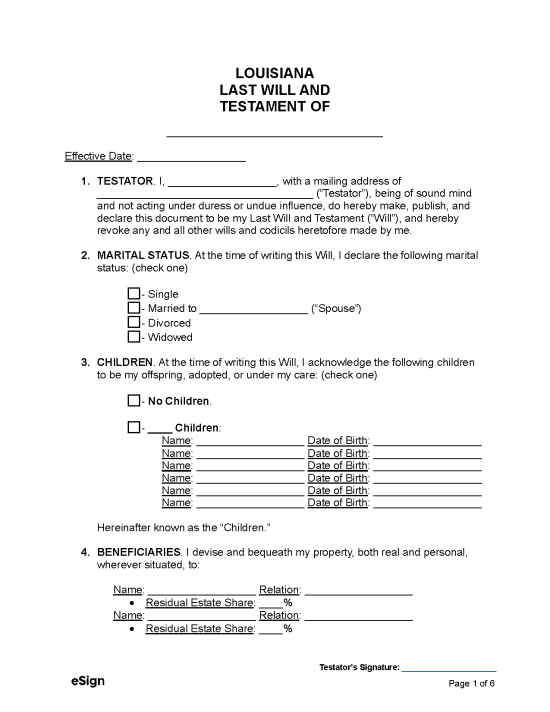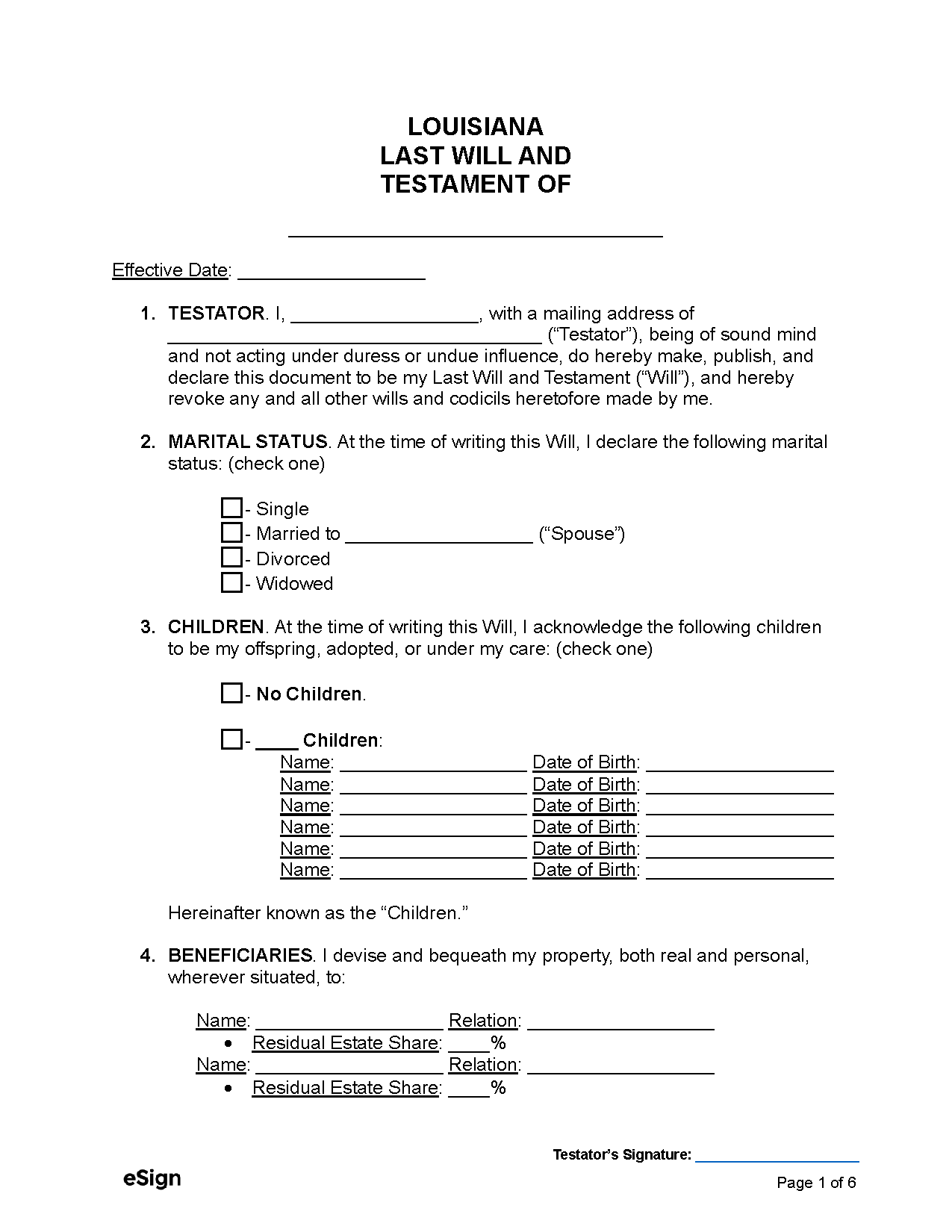State Laws
Persons aged 16 or older and who are in sound mental condition may create a will.[1],[2]
Holographic Wills – A handwritten will is valid if written, signed, and dated by the testator.[3]
Revocation – A will may be revoked if it is destroyed by the testator (or at their direction), by a written declaration, or if it is inconsistent with a newly created will.[4],[5]
Signing Requirements – The testator must sign the will on each page and at the end of the instrument before a notary and two competent witnesses. The notary and witnesses must then sign an acknowledgment in the testator’s presence.[6]
Probate Process in Louisiana (3 steps)
In Louisiana, probate is referred to as “succession,” a process that can be administered or unadministered. The below guide only covers unadministered successions; administered successions require further steps that are not addressed here.
Unadministered successions are the most common and do not involve a succession representative (a.k.a., “executor”) to oversee the distribution of assets and payment of debts. An estate can be distributed through the simpler, unadministered succession if all beneficiaries (called “legatees”) agree to the process and there has been no demand by any interested party for an administered succession.[7]
Although there is no time limit for opening a succession, it is recommended to begin the process as soon as practical to avoid complications.
1. Open Succession
Estates with a total value under $125,000 may be distributed using the Small Succession Affidavit (also known as a “small estate affidavit) as an alternative to probate. The affidavit can also be used regardless of estate value if the decedent’s death occurred at least 20 years before the affidavit’s filing.[8]
The succession must be opened in the district court parish where the decedent last resided.[9] The following documents will need to be prepared and submitted:
- Petition for Probate of Testament – This form must be filed for the court to recognize the will’s validity.[10]
- Petition for Possession – This petition affirms the petitioners’ mental capacity, the decedent’s date of passing, and that the estate is relatively unencumbered.[11]
- Affidavit of Death, Jurisdiction, and Heirship – This document must be signed by two affiants with personal knowledge of the facts outlined in the Petition for Possession.[12],[13],[14]
- Sworn Detailed Descriptive List – A list of the decedent’s assets and debts must be completed and sworn to by any interested party.[15]
- Original Will – The original will must be filed with the court.[16]
- Judgment of Possession – This instrument affirms the petitioners as the rightful heirs and provides their identity and addresses to the court.
Before continuing, the court must find that the estate is relatively free of debts before approving the petition. Upon approval of the filings, the judge will execute the Judgment of Possession, ordering that the decedent’s property be transferred to the designated legatees.
However, even after the estate has been distributed, creditors may demand that the legatees post bond for any claims and that administration of the estate be ordered.[17]
2. Receieve Judgment of Possession
After the Judgement of Possession has been ordered, the will’s instructions may be executed. If third parties are in possession of any of the estate’s assets, the legatees may serve Judgement of Possession on them, which acts as a court order demanding that the assets be transferred.
If a creditor claims a debt is owed to them by the decedent, they may compel the legatees to provide security for payment of their claim. If security is not provided, administration of the succession may be demanded by the creditor.[18]
3. File Judgment of Possession (If Applicable)
If the estate includes real property located in a parish of New Orleans, a copy of the Judgment of Possession must be filed by an attorney with the parish assessor within 15 days from the execution of the Judgement of Possession.[19]
Though not expressly required by law, legatees inheriting real property outside of New Orleans are recommended to file the Judgment of Possession with the clerk of courts as soon as practical. Doing so will establish them as the legitimate title holder of the property and avoid potential complications regarding ownership.

